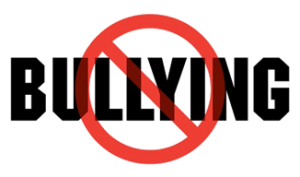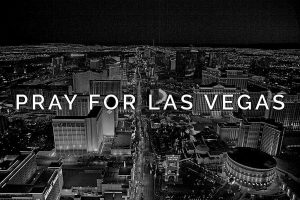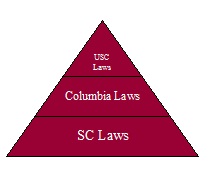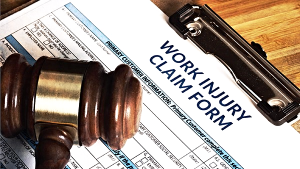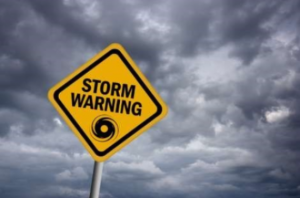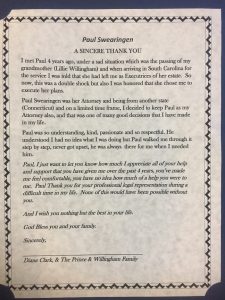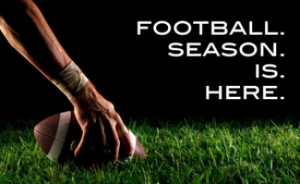Lisa Long Cotten
October is National Bullying Prevention Awareness Month, and on October 12, 2017, the Blythewood Middle School (BMS) Parent Teacher Organization kicked off a program called Rachel’s Challenge with a community event that included a silent auction, video game truck, food trucks and raffles. Rachel’s Challenge is based on the life and writings of Rachel Joy Scott, who was the first victim of the Columbine school shootings in 1999. The goal of Rachel’s Challengeis “to have all schools free from harassment, bullying and violence so teachers are free to teach and students are awakened to learn.” Rachel’s Challenge encourages individuals to replace acts of violence, bullying, and negativity with acts of respect, kindness, and compassion through presentations, training, community events and professional development. A component of the program at BMS is the formation of a new leadership in kindness club called Friends of Rachel. Friends of Rachel are ‘kindness ambassadors’ who participate in projects to support building a culture of kindness and empathy at the school. I was so inspired by the initiative that I began to explore other ways school districts are dealing with the issue of bullying.
Bullying is defined by Merriam-Webster’s dictionary as “abuse and mistreatment of someone vulnerable by someone stronger, more powerful, etc.” Bullying has likely existed in some form since the beginning of human civilization and continues to plague our schools, playgrounds, and workplaces (children who bully grow up to become adults who bully). The surge of cyberbullying, the electronic posting of mean-spirited messages about a person, has further complicated the problem as it is more difficult to identify perpetrators because such posts are often done anonymously. Bullying may escalate problems such as absenteeism, school violence, and disciplinary issues. Extreme cases of bullying have contributed to suicides and/or homicides. It is likely that such extreme outcomes are the result of underlying mental illness; however, it would be naïve to ignore the role of bullying in pushing one towards harming themselves or others.
The South Carolina Legislature has enacted the Safe School Climate Act. S.C. Code of Laws Ann. § 59-63-110, et. seq. The Act defines harassment, intimidation or bullying as “a gesture, an electronic communication, or a written, verbal, physical, or sexual act that is reasonably perceived to have the effect of: (a) harming a student physically or emotionally or damaging at student’s property, or placing a student in reasonable fear of personal harm or property damage or (b) insulting or demeaning a student or group of students causing substantial disruption in, or substantial interference with, the orderly operation of the school.” S.C. Code of Laws Ann. § 59-63-120 The Act also requires local school districts to adopt policies prohibiting harassment, intimidation and bullying under the guidance of the South Carolina Department of Education. S.C. Code of Laws § 59-63-140
The South Carolina Department of Education’s Model Policy Prohibiting Harassment, Intimidation or Bullying contains ten statutory requirements. The policy must include a statement prohibiting harassment, intimidation, or bullying of a student; a definition of harassment, intimidation, or bullying no less inclusive than the definition in § 59-63-120; a description of appropriate student behavior; consequences and appropriate remedial actions for persons committing acts of harassment, intimidation, or bullying and for persons engaging in reprisal or retaliation; a procedure for reporting acts of harassment, intimidation, or bullying to include a provision for reporting anonymously (however, formal disciplinary action must not be taken solely on the basis of an anonymous report. The procedures must identify the appropriate school personnel responsible for taking the report and investigating the complaint); a procedure for prompt investigation of reports of serious violation and complaints; a statement that prohibits reprisal or retaliation against a person who reports an act of harassment, intimidation, or bullying; consequences and appropriate remedial action for persons found to have falsely accused another; a process for discussing the district’s harassment, intimidation, or bully policy with students; and a statement of how the policy is to be publicized, including notice that the policy applies to participation in all school-sponsored functions.
1. If a child experiences bullying at school, he should report it immediately to a teacher, counselor, or school administrator. The child should also tell his parents about the incident.
2. If parents discover that their son or daughter is being bullied, the parents should contact the appropriate school officials (principal or assistant principal) and request an investigation.
3. If the parents are not satisfied with the principal’s course of action, they should submit a written complaint to the District Superintendent’s office for further review.
4. If the parents feel they are not getting a prompt response to their concerns from the District Superintendent’s office, the parents should then contact the Office of the Ombudsmen at the SCDE so that a course of action involving the parent and the district can be taken to hopefully resolve the parents’ concerns.
5. The SCDE’s ombudsman cannot take sides in the investigation. Instead, she will investigate the parents’ concerns, connect them with the appropriate local school district staff, and provide them with the local school district’s bullying and harassment policies should they wish to appeal their issues to the District Superintendent or local board.
https://ed.sc.gov/districts-schools/school-safety/bullying/
Richland School District Two’s website also provides essential information to parents who suspect their child is being bullied. Parents are encouraged to contact the student’s teacher or call (803) 736-8756, a 24 hours a day Safe School line, to report incidents. The site also provides the following helpful tips to identify if a child is being bullied or may be bullying others:
Being Bullied
Comes home with damaged or missing clothing or other belongings; reports losing items such as books, electronics, clothing or jewelry; has unexplained injuries; complains frequently of headaches, stomachaches or feeling sick; has trouble sleeping or has frequent bad dreams; has changes in eating habits; hurts themselves; are very hungry after school from not eating their lunch; runs away from home; loses interest in visiting or talking with friends; is afraid of going to school or other activities with peers; loses interest in school work or begins to do poorly in school; appears sad, moody, angry, anxious or depressed when they come home; talks about suicide; feels helpless; often feels like they are not good enough; blames themselves for their problems; suddenly has fewer friends; avoids certain places; or acts differently than usual
Bullying Others
Becomes violent with others; gets into physical or verbal fights with others; gets sent to the principal’s office or detention a lot; has extra money or new belongings that cannot be explained; is quick to blame others; will not accept responsibility for their actions; has friends who bully others; or needs to win or be best at everything
Cyberbullying
Sending threatening, taunting or teasing emails to someone; using a computer or any other technology to spread gossip or rumors or to make someone’s private information public; pretending to be another person online to post or e-mail things that will embarrass or get that person in trouble; being a “pretend friend” online with the intention of later hurting or humiliating someone; “ganging up” on someone in a chat room or on a message board; “griefing” someone in an online video game comments by constantly picking on a new or inexperienced player; texting hurtful or rude comments to someone’s phone; using chat, instant messaging or a blog to exclude people, pick on people or divide the “populars” from the “unpopulars”
Source: www.stopbullying.gov and PBS Kids.org
https://www.richland2.org/Departments/Operations/School-Safety-Information/Information-on-Bullying
As the parent of a middle schooler, I am comforted to know that the State of South Carolina is committed to combating bullying at school and on-line. I encourage all parents to take the time to examine your child’s district policy on bullying and become engaged in the process by talking with your student and his/her teachers and school administrators about bullying and ways to raise awareness and create a community centered on kindness and empathy.
Other Resources for Parents
http://www.rachelschallenge.org
http://www.stopbullying.gov/what-is-bullying/index.html
http://www.thebullyproject.com/parents
http://www.stopbullying.gov/prevention/talking-about-it/index.html
http://www.violencepreventionworks.org/public/bullying_tips_for_parents.page
http://www.apa.org/helpcenter/bullying.aspx
